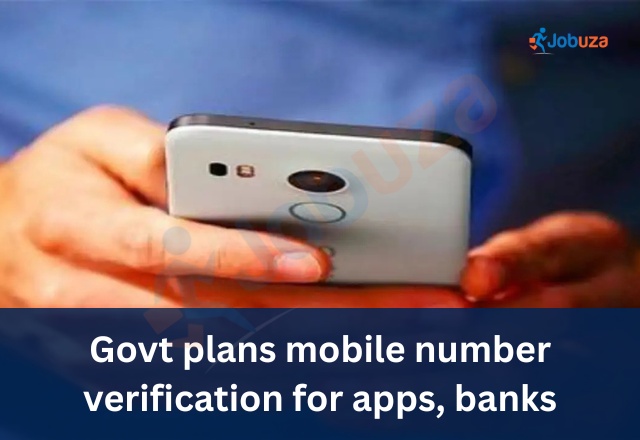Govt Proposes Mandatory Mobile Number Verification for Apps and Banks to Tackle Digital Fraud
In a significant step to curb rising cybercrime, the Department of Telecommunications (DoT) has proposed new cybersecurity rules that could soon make mobile number verification mandatory for apps, banks, and other digital platforms across India.
The draft rules, issued on Tuesday, aim to create a Mobile Number Validation (MNV) platform that checks if a phone number truly belongs to a user. This verification would be done through a centralized, government-run system.
With over 1.16 billion mobile connections and the world’s largest digital payments market, India is a prime target for mobile-based fraud. The government’s move targets the growing misuse of mobile numbers in phishing scams, SIM swap frauds, and impersonation cases — especially as incidents of digital arrests and cybercrime have tripled between 2022 and 2024, according to recent government data.
Who Will Be Affected?
The rules would apply to what the government calls Telecommunication Identifier User Entities (TIUEs). These are any platforms that use mobile numbers or telecom identifiers to offer services or verify users — apart from licensed telecom operators.
A DoT official confirmed that this includes:
-
OTT platforms
-
Banks and fintech companies
-
Ride-hailing apps like Ola and Uber
-
Food delivery platforms like Zomato and Swiggy
-
E-commerce platforms and more
Any platform using a phone number to identify users or provide services would fall under this rule.
Mandatory Verification When Directed
While businesses can opt for voluntary verification, the rules make mobile number verification compulsory when directed by the central or state government or any authorized agency. This adds a new layer of compliance for digital service providers.
Why the New Rules?
The objective is clear: telecom cybersecurity and prevention of fraud and misuse. Fraudsters often exploit lost or stolen SIM cards and use fake mobile numbers to commit financial crimes. Despite existing KYC norms, “mule SIMs” still enable fraud.
These rules are expected to tighten control and accountability over mobile-linked services.
Concerns Over Privacy and Implementation
While the initiative could significantly reduce fraud, experts have raised red flags over user privacy and data centralization.
-
Sandeep K Shukla, professor at IIT Kanpur, said the move balances privacy with security.
-
Vikram Jeet Singh, a legal expert on internet policy, warned of unclear data access policies:
“Will it just validate a number or access more personal details? That needs clarification.”
There’s also concern about the cost implications. The draft proposes a pricing model:
-
Free for government agencies
-
₹1.50 per check for government-directed verifications
-
₹3 per check for private companies conducting voluntary validation
Singh noted that these costs could be passed on to consumers by banks and service providers.
Massive Database and Operational Challenge
The MNV system would require the government to manage a real-time database of over 1.5 billion active mobile numbers. Experts say this could be a logistical challenge of national scale.
IMEI Verification for Mobile Devices
The proposed amendments also target mobile device fraud through stricter IMEI controls:
-
Manufacturers must ensure new phones don’t reuse existing IMEIs
-
Second-hand phone sellers must verify IMEIs through a central government database before selling any device
-
Each IMEI check will cost ₹10
A central database of tampered and blacklisted devices will also be created to prevent fraud via cloned phones.
Emergency Suspension Powers
In case of security threats, authorities can temporarily suspend the use of any mobile number or telecom identifier, for both telecom operators and digital platforms under TIUE.
Open for Public Feedback
The draft rules are open for public consultation for 30 days. Stakeholders, businesses, and citizens can share feedback before the rules are finalized.
Final Thoughts
As India digitizes at a rapid pace, these proposed rules represent a major shift in how mobile numbers are used and verified. If implemented, this could enhance digital safety but also raises critical questions about privacy, cost, and operational execution.
Stay tuned as the telecom department gathers feedback — and digital India prepares for its next big compliance challenge.



